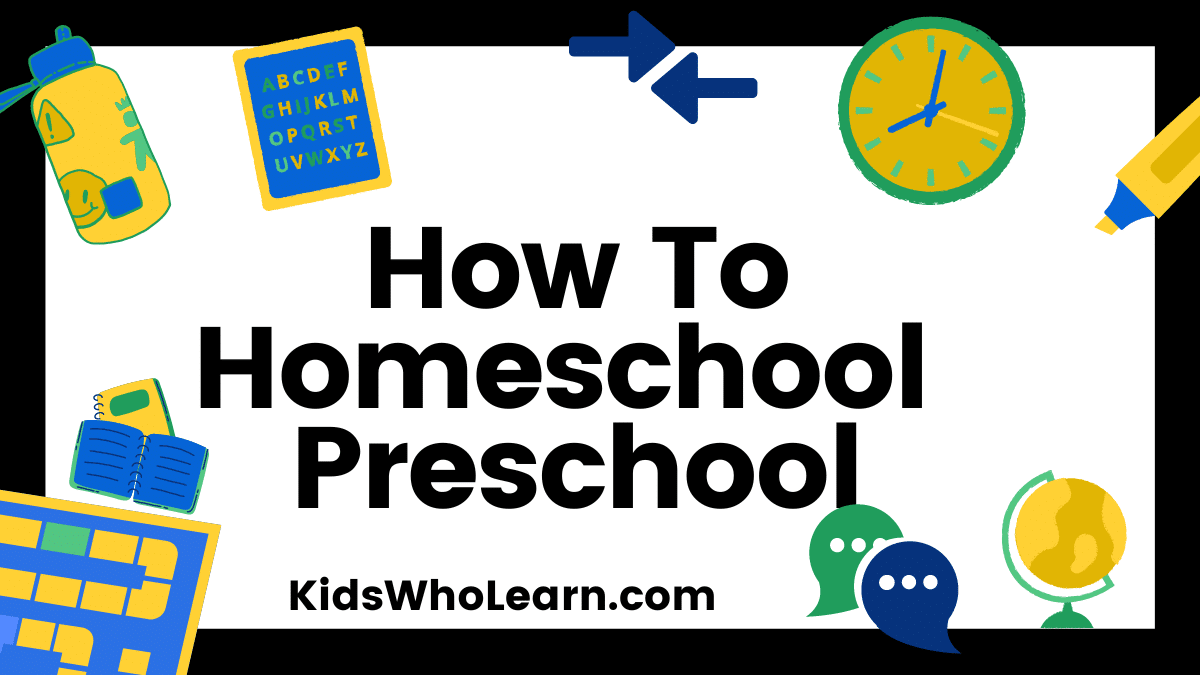Deciding to homeschool your children is a significant step, and it’s crucial to understand the parameters and requirements specific to Colorado. As you embark on this educational journey, being well-informed will help ensure a fulfilling and successful experience for both you and your children.
In Colorado, homeschooling involves understanding the state’s legal requirements, creating a curriculum tailored to your children’s needs, and establishing a consistent routine, among other considerations. Additionally, providing socialization opportunities and monitoring academic progress are essential components of a well-rounded homeschool experience.
Key Takeaways
- Colorado homeschool requirements include understanding local laws, crafting a curriculum, and teaching in an organized manner.
- Homeschooling in Colorado involves incorporating socialization opportunities and monitoring academic progress for a well-rounded experience.
- Resources are available for special education and Colorado homeschool support to address various unique situations and learning needs.
Understanding Colorado Homeschool Laws
In this section, we’ll go through the key legal requirements you need to be aware of when homeschooling in Colorado. The main aspects covered are the Notice of Intent to Homeschool, Record Keeping Requirements, and Homeschool Hours and Subject Requirements.
Notice of Intent to Homeschool
In Colorado, you are required to submit a written notification of your intent to homeschool. This notice must be sent to your local school district superintendent 14 days before you start homeschooling. Include the following information in your notice:
- Name, age, and residence of the child
- Hours of homeschooling per day
- Statement of intent to provide a basic educational program, including subjects such as reading, writing, math, history, civics, literature, and science.
Remember to send an updated notice each year, or within 14 days of moving to a new school district.
Record Keeping Requirements
Colorado law requires homeschooling parents to maintain detailed records of their child’s education. Keep these records for at least two years. Your records should include:
- Attendance logs (your child must attend 172 days per year, with an average of 4 hours per day)
- Test result records from standardized tests taken in grades 3, 5, 7, 9, and 11
- Immunization records, unless you claim a religious or medical exemption
In case of a request from the superintendent, you must provide the requested records within 14 days.
Homeschool Hours and Subject Requirements
Colorado requires at least 688 hours of homeschooling per year, averaging to about 4 hours per day with 172 instructional days. Aim to cover the following subjects:
- Reading
- Writing
- Mathematics
- History
- Civics
- Literature
- Science
Feel free to explore additional subjects and tailor your child’s education to their interests and needs; however, these core subjects must be part of their homeschool program.
By understanding and following these legal requirements, you’ll be well on your way to a successful homeschooling experience in Colorado.
Creating a Homeschool Curriculum
Choosing Subjects According to Colorado Standards
When creating a homeschool curriculum in Colorado, it’s essential to choose subjects that align with the state’s educational standards. In Colorado, the Core Academic Areas that homeschool students must cover are:
- Language Arts
- Math
- Social Studies
- Science
- Civics
- History
- Constitution
However, you can also include additional subjects such as languages, arts, and physical education to create a well-rounded educational experience for your child.
Curriculum Resources and Providers
To develop a comprehensive homeschool curriculum, take advantage of various curriculum resources and providers. Some popular options include:
- Online resources: You can find numerous websites that offer free materials, lesson plans, and activities. Examples include Khan Academy and Easy Peasy All-in-One Homeschool.
- Curriculum providers: These companies offer complete curricula packages that align with state standards. Look into options such as Time4Learning and Sonlight.
- Local homeschooling groups: Connect with other homeschoolers in your area, who can provide valuable insights, advice, and resources.
| Resource Type | Examples |
|---|---|
| Online Resources | Khan Academy, Easy Peasy All-in-One Homeschool |
| Curriculum Providers | Time4Learning, Sonlight |
| Local Homeschooling Groups | Find them through social media or local homeschool support organizations |
Remember, flexibility is one of the benefits of homeschooling. Feel free to combine resources and providers to create a curriculum that best meets your child’s needs and interests.
Establishing a Homeschool Routine
Setting Up Daily Schedules
Creating a daily schedule is crucial for homeschooling success. As you establish your homeschool routine, remember that consistency is key. Start by setting a wake-up time and a specific starting time for lessons each day. This will help your child develop good habits and make it easier for them to transition into the learning mode.
Incorporate breaks and recess times as well. You can use a table to outline your daily schedule, making it easier for both you and your child to follow:
| Time | Activity |
|---|---|
| 8:00 am | Wake up |
| 9:00 am | Start lessons |
| 11:00 am | Break |
| 12:00 pm | Lunch and recess |
| 1:30 pm | Resume lessons |
| 3:30 pm | End lessons |
| 4:00 pm | Extracurriculars |
Don’t forget to include time for subjects such as arts, physical education, and life skills to ensure a well-rounded education.
Balancing Flexibility and Structure
While homeschooling allows for flexibility, it’s essential to strike a balance between flexibility and structure. Setting specific goals for each week or month can help you maintain a sense of order. However, you should also be ready to adapt your plans according to your child’s needs and progress.
Here are some helpful tips for balancing flexibility and structure:
- Establish weekly goals: Set objectives for each subject, and use a planner or calendar to track progress.
- Create a lesson plan: Draft lesson plans in advance so you have an outline of what needs to be covered.
- Review progress regularly: Evaluate your child’s understanding of the material and make adjustments as needed.
- Be open to change: Be prepared to modify your approach or schedule to better suit your child’s learning style.
Remember, homeschooling in Colorado is a journey, and finding the right balance between routine and flexibility will go a long way in making it an enjoyable and effective learning experience for your child.
Incorporating Socialization
Homeschooling in Colorado offers numerous opportunities for fostering socialization in your children’s daily routine. In this section, we will discuss two key aspects to consider when incorporating socialization: Community Groups and Co-ops and Extracurricular Activities and Sports.
Community Groups and Co-ops
Joining a community group or a homeschool co-op is an excellent way to encourage social interaction and collaboration among homeschoolers. These groups typically offer:
- Group classes and workshops
- Field trips and educational outings
- Social events and get-togethers
- Support and resources for parents
To find a community group or co-op in Colorado, you can:
- Search online for local homeschooling groups
- Reach out to your local library or community center
- Connect with other homeschooling families in your area
Extracurricular Activities and Sports
Participating in extracurricular activities and sports provide homeschoolers with the opportunity to socialize while learning new skills and having fun. Some popular options for homeschoolers include:
- Art and music classes
- Science clubs and nature programs
- Martial arts and dance lessons
- Local sports leagues and teams
In Colorado, homeschoolers are even allowed to take part in public school extracurricular activities if space is available. Be sure to check with your local school district for details and eligibility requirements.
By integrating these approaches, you can help your children develop meaningful friendships, teamwork skills, and a strong sense of community as they progress through their homeschooling journey in Colorado.
Assessing Academic Progress
When homeschooling in Colorado, it’s important to keep track of your child’s academic progress. This section offers information on two common methods for assessing your child’s learning: standardized testing options and portfolio reviews and evaluations.
Standardized Testing Options
In Colorado, homeschool students are required to take standardized tests in grades 3, 5, 7, 9, and 11. Several testing options are available to choose from, including:
-
Colorado Measures of Academic Success (CMAS): This test covers subjects like language arts, math, science, and social studies. You can register your child for the test through your local school district.
-
Nationally-recognized standardized tests: If you’d rather opt for a more broadly recognized test, options include the Iowa Test of Basic Skills, Stanford Achievement Test, and California Achievement Test, among others.
Make sure to research the testing options available to you and choose the one that best fits your child’s needs and learning style.
Portfolio Reviews and Evaluations
Another way to assess your child’s academic progress is through portfolio reviews and evaluations. This method can serve as an alternative or supplement to standardized testing.
Creating a portfolio for your homeschooler involves collecting samples of their work throughout the year. This can include:
- Assignments and projects
- Artwork and other creative projects
- Writing samples
- Reading logs
To fully assess your child’s progress, consider having an evaluation done by a certified teacher or other education professional. An evaluation typically involves:
-
Reviewing the portfolio: The evaluator will examine the contents of your child’s portfolio to get a sense of their academic growth and progress over the school year.
-
Discussion with you and/or your child: The evaluator may ask questions about the learning process, the homeschool curriculum, and your child’s overall educational experiences.
-
Providing feedback: After the review, the evaluator can offer constructive feedback on your child’s strengths, areas for improvement, and suggestions for future learning opportunities.
Assessing your child’s academic progress is crucial in ensuring a successful homeschooling experience. Colorado offers various standardized testing options and portfolio reviews, so find the method that works best for your family and keep track of your child’s learning throughout the year.
Special Education and Additional Resources
Resources for Special Needs
As you venture into homeschooling in Colorado, it’s essential to know about the available resources for students with special needs. Many organizations offer support tailored to homeschooling families that cater to a variety of challenges.
- Peak Parent Center – This organization provides training, information, and support for parents in Colorado who have children with disabilities. Visit their website here.
- HSLDA Special Needs Consultants – Homeschool Legal Defense Association offers resources and guidance to families who are homeschooling children with special needs. They provide information on Individualized Education Plans (IEPs) and support their members through consultations. More about HSLDA here.
- Colorado Department of Education – The CDE has a dedicated Office of Special Education which can help with understandings about the state’s support for students with special needs: CDE’s Office of Special Education.
To help organize your resources, you might consider creating a table like this one:
| Organization | Services | Website |
|---|---|---|
| Peak Parent Center | Training, Information & Support | peakparent.org |
| HSLDA Special Needs Consultants | Guidance & Resources | hslda.org |
| CDE Office of Special Education | State Support Information | cde.state.co.us |
Scholarships and Financial Support
Homeschooling can be financially challenging for some families, but scholarships and financial assistance can ease the burden, especially for students with special needs.
- The Gardiner Scholarship – A scholarship supporting students with specific special needs, which reimburses eligible families for expenses related to homeschooling. Learn more about the Gardiner Scholarship here.
- Autism Speaks Family Grants – This organization may offer grants for families who have children with Autism Spectrum Disorder. Find more information here.
Remember to research and be aware of deadlines when applying for scholarships and financial support.
Don’t hesitate to connect with local homeschooling groups and online forums, as they might have firsthand experience with resources and financial support for special education needs in Colorado.
Frequently Asked Questions
What steps do I need to follow to start homeschooling my child in Colorado?
To start homeschooling your child in Colorado, you should:
- Understand Colorado’s homeschool law and your child’s rights.
- Submit a Letter of Intent to homeschool to your local school district within 14 days of starting.
- Choose a curriculum that aligns with Colorado’s requirements.
- Keep detailed records of attendance, progress, and testing.
- Provide an annual assessment to demonstrate your child’s progress.
Where can I find a suitable homeschool curriculum that meets Colorado state requirements?
To find a suitable homeschool curriculum that meets Colorado state requirements, consider checking:
- Online homeschool communities and forums for recommendations and reviews.
- Local homeschool co-ops or groups for guidance and support.
- Educational websites that list homeschool curriculums by grade and subject.
Make sure your chosen curriculum covers the required subjects and adheres to the educational requirements of the state.
How does one go about submitting a Letter of Intent to homeschool in Colorado?
To submit a Letter of Intent to homeschool in Colorado:
- Obtain the homeschool notification form from your local school district or create your own.
- Complete the form, including your child’s name, age, and address, as well as the chosen method for annual evaluation.
- Submit the form to your local school district either in person, by mail, or electronically, within 14 days of starting homeschooling.
What are the graduation requirements for a homeschool student in Colorado?
Graduation requirements for a homeschool student in Colorado include:
- Completion of a minimum of 172 days of instruction per year.
- Covering subjects such as reading, writing, mathematics, and other required subjects.
- Satisfactory annual assessments reflecting progress and competency in all required subject areas.
However, as a homeschool parent, you have some flexibility in determining your child’s high school requirements and determining when your child has met those requirements.
Can homeschool expenses be deducted on taxes in Colorado?
Currently, Colorado does not offer tax deductions or credits specifically for homeschool expenses. However, you can explore federal tax deductions or credits for educational expenses and 529 plans to see if they apply to your situation.
Is there a specific form for homeschool evaluations in Colorado, and where can I obtain it?
There is no specific form for homeschool evaluations in Colorado. Instead, you are required to provide annual assessments through standardized testing or a written evaluation by a qualified professional. The choice of method and evaluator lies with you, but the results must be submitted to your local school district as part of your homeschooling records.







